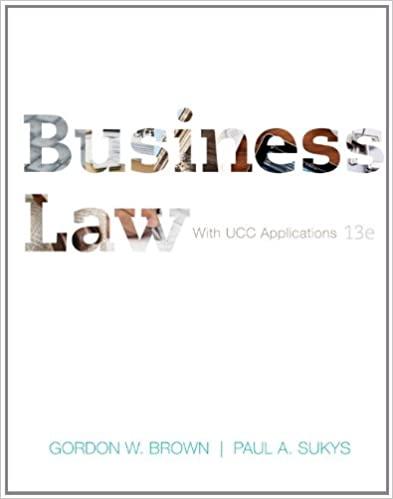After General Manuel Noriega had come under the authority of the United States forces following the invasion
Question:
After General Manuel Noriega had come under the authority of the United States forces following the invasion of Panama, his attorneys argued that he should be treated as a prisoner of war (POW) under the Geneva Conventions. The United States government agreed to treat Noriega as a POW but refused to give him official POW status. Noriega’s attorneys argued that this treatment as POW could be withdrawn by the government at any time. They asked the court to declare their client a POW under the Geneva Conventions. The government argued that the events in Panama were considered hostilities rather than a war. Consequently, the government pointed out, Noriega could not be a POW. Article II of Geneva Convention III states that “the present convention shall a p ply to all cases of declared war and of any other armed conflict which may arise between two or more of the High Contracting Pa r ties, even if the state of war is not recognized by one of them.” Moreover, the International Red Cross Commentary on Convention III says, “Any difference between two states leading to the intervention of the armed forces is an armed conflict within the meaning of Article II.” Finally, Article IV of the Convention defines POWs as “persons belonging to one of the following categories, who have fallen into the power of the enemy: (1) members of the armed forces of a Party to the co n flict. . . .” Taking all of this into account, as well as the United States courts’ intent to construe the Geneva Conventions liberally, should the court declare Noriega a POW? E x plain. United States of America v. Manuel Antonio Noriega, 808 F. Supp. 791 (S.D. FL).
Step by Step Answer:

Business Law With UCC Applications
ISBN: 9780073524955
13th Edition
Authors: Gordon Brown, Paul Sukys





